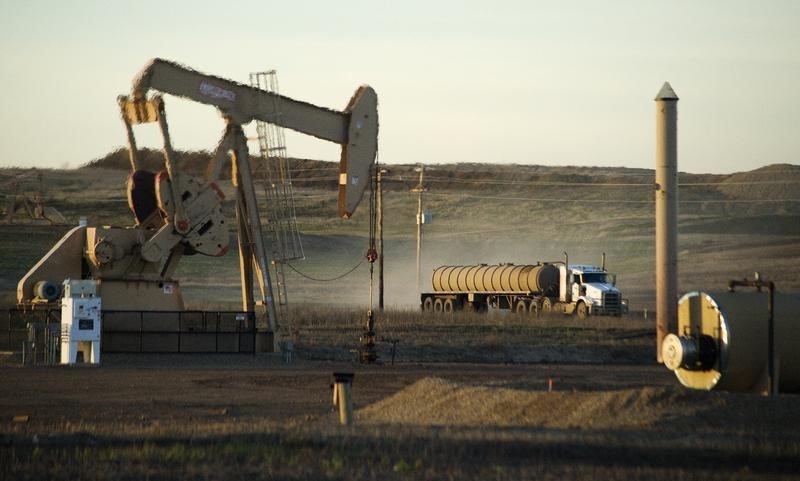Investing.com’s stocks of the week
Investing.com - Oil prices traded lower on Monday, breaking a two-day rally, as concerns over demand outweighed hopes for further supply reductions from OPEC and others.
New York-traded West Texas Intermediate crude futures fell 47 cents, or 0.9%, to $54.03 a barrel by 9:50 AM ET (11:50 GMT), while Brent crude futures, the benchmark for oil prices outside the U.S., lost 33 cents, or 0.6%, to $58.20.
Oil had risen for two days running on the back of reports that Saudi Arabia would not tolerate the current decline in prices and was considering all options to deal with it. Demand-side concerns still left oil with a weekly decline of more than 2%.
Kuwaiti energy minister Khaled al-Fadhel tried to talk prices up again Monday, saying fears of a global economic downturn were "exaggerated" and global demand for crude should pick up in the second half, helping to rebalance the market.
Analysts warned that efforts by OPEC to deal with oversupply by curbing production may be insufficient.
“Non-OPEC supply growth next year will mean OPEC will probably have to take further action or face the risk of lower oil prices,” commodity strategists at ING said in a note, calling into question whether a simple extension of current cuts would do the trick.
Investing.com senior commodity analyst Barani Krishnan noted that confidence looked fragile, saying “it could take just another U.S. stockpile build or Chinese buying of Iranian crude to send the market into a tailspin."
U.S.-China trade tensions remain the primary risk to the global economy, which some fear may be nearing the brink of recession, dampening the outlook for world oil demand.
After U.S. President Donald Trump declared last week that he was “not ready” to make a trade deal with Beijing, Goldman Sachs came out Sunday and said they no longer expected an expected an agreement to be reached ahead of the presidential election in November.
Goldman's economists said they expect the U.S. to move forward with further tariffs on Chinese goods on Sept. 1 and have “increased our estimate of the growth impact of the trade war”.
The International Monetary Fund (IMF), meanwhile, warned that Chinese economic growth will slow further if the trade conflict drags on.
The IMF also trimmed its forecasts for oil demand growth in 2019 and 2020 to 1.1 million and 1.3 million barrels per day respectively, following a similar move from the International Energy Agency.
In other energy trading, gasoline futures lost 0.7% to $1.6625 a gallon by 9:52 AM ET (11:52 GMT), while heating oil declined 0.5% to $1.7994 a gallon.
Lastly, natural gas futures edged forward 0.2% to $2.123 per million British thermal unit.
-- Reuters contributed to this report.
